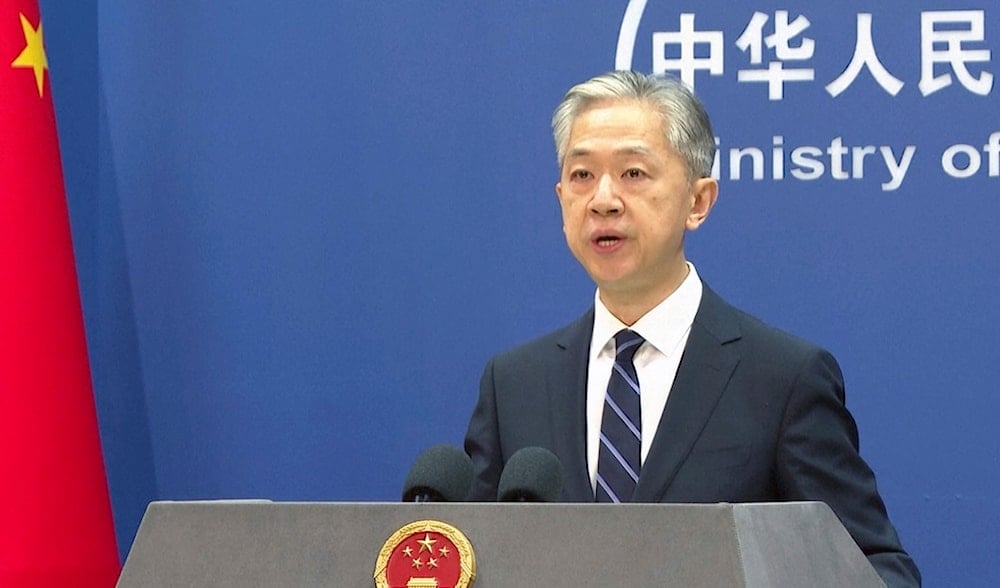China warns US against striking intl. deals that could harm Beijing
Beijing cautions Washington against forming trade deals at China's expense, amid rising tensions over tariffs and global economic policy.
-

Chinese Foreign Ministry spokesperson Wang Wenbin speaks during a press conference at the Ministry of Foreign Affairs in Beijing, on Friday, June 16, 2023. (AP)
China has issued a firm warning to the United States, cautioning Washington against striking international deals at Beijing’s expense. Foreign Ministry spokesperson Wang Wenbin delivered the message during a press briefing on Monday.
“We firmly oppose the US engaging in any form of cooperation that harms China's interests,” Wang stated, emphasizing that such actions “undermine the principles of international relations and damage mutual trust.”
The remarks follow a recent joint statement by the United States and Japan, pledging closer cooperation on economic and defense matters, a move widely viewed as an attempt to counter China’s alleged growing global influence.
US-China tensions resurface
Wang urged the United States to “honor its commitment of not seeking a new Cold War with China, not aiming to change China’s system, and not opposing China through alliances.” These commitments were previously made by former US President Joe Biden in high-level dialogues with the Chinese leadership.
This warning adds to the growing list of concerns voiced by Beijing amid renewed friction with Washington.
Trade disputes, military posturing in the Indo-Pacific, and increased alignment between the US and its allies have all heightened tensions in recent months.
Trump’s legacy and current trade friction
Although Biden sought to stabilize ties with China, many of the tariffs imposed during President Donald Trump’s administration remain in place. These measures, aimed at curbing China’s economic rise, marked a major escalation in the US-China trade war and continue to be a source of contention.
Beijing has repeatedly called for the removal of these tariffs, citing their adverse impact on global trade and bilateral relations.
The current administration has yet to signal any significant shift in tariff policy, even as it engages allies like Japan, South Korea, and the Philippines in economic and military cooperation.
Trump's policies have directly impacted where Chinese investments go, with clients scaling back their holdings of US Treasuries in favor of European debt, as trade tensions and economic uncertainty under Trump prompt a reassessment of overseas investments, according to Deutsche Bank AG.
“We have observed some diversification away from the US dollar in Chinese investors’ portfolios,” said Lillian Tao, head of China macro and global emerging market sales, in an interview.
She noted that Chinese interest in alternative markets, particularly in Europe, has gained momentum.
Beijing’s strategic warning to Washington
“China opposes forming small cliques and engaging in camp confrontation,” Wang added, reiterating that Beijing prefers multilateralism and equitable dialogue over alliance-based containment strategies.
The Chinese Foreign Ministry’s statement comes at a time of mounting geopolitical complexity, with Beijing striving to maintain its regional influence and economic momentum while navigating against an increasingly assertive US foreign policy stance.

 3 Min Read
3 Min Read










